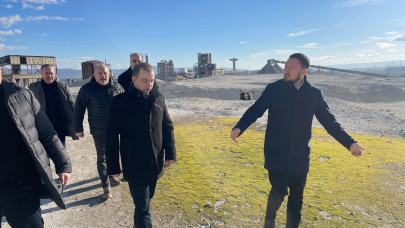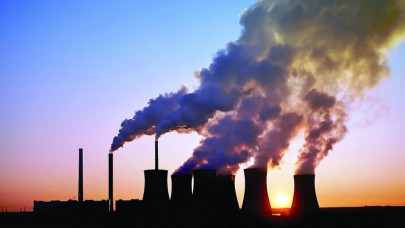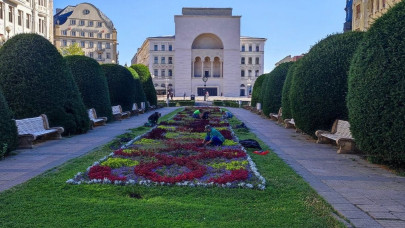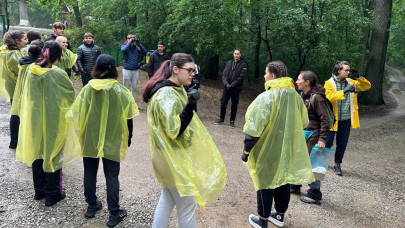According to a recent study, by reusing clothes we reduce by 70 times the impact on the environment that the production of new clothing would have.
"On October 24, the International Day of Climate Action is celebrated all over the world. We can all help reduce the level of pollution and the acceleration of climate change by choosing to wear the clothes we have longer and buying second-hand clothing. They have great prices and are very diverse in clothing styles, thus creating a wardrobe of timeless pieces. In addition, by buying second-hand clothes, we help reduce the overconsumption of new clothing, the production of which is extremely polluting for the environment. According to a study carried out this year by the European Confederation of Recycling Industries (EuRIC), reusing clothes reduces by 70 times the impact on the environment that the production of new clothing would have", says Rodica Bulăceanu, representative of Humana People to People.
3 kg of CO2 is saved by a single item of second-hand clothing purchased.
"Although it seems incredible, each of us can contribute positively to slowing down climate change. For example, with each piece of second-hand clothing purchased, we avoid, on average, the emission of 3kg of CO2 related to the production of a similar new piece of clothing. By choosing a pair of second-hand trousers, we save the emission of 17 kg of CO2, as much as a car traveling 100 kilometers would pollute, choosing a t-shirt, 4.7 kg of CO2, and a coat of 58 kg of CO2. Then, we also reduce the use of water for the production of new textile materials. Only 0.01% of the water used to produce new clothes is needed when sorting and redistributing second-hand clothes. Let's not forget that, for the production of cotton clothes, tons of water is consumed. For example, jeans are made from cotton, a vegetable fiber that, in order to become denim textile material, is processed with, on average, 10 tons of water, which would be enough for a person to live for 5 years. In addition to water consumption, there are pollution processes, the use of fertilizers and pesticides, chemical treatments for bleaching, energy consumption, and the emission of greenhouse gases", declares Rodica Bulăceanu, representative of Humana People to People, a group of associations that is involved in mitigating climate change and developing poor communities in Africa and Asia, through the collection, professional sorting and redistribution of second-hand clothing items in over 500 stores worldwide, including in Romania.
The proceeds from the sale of these clothes are donated by the People to People Humane Organization to support development programs in disadvantaged communities around the world and programs to protect the environment.
Another consequence of the overconsumption of new clothes is the danger of them becoming mountains of textile waste, highly polluting the environment.
"There are billions of people who buy dozens of new clothes every year and wear them too few times before they're gone. The problem is that these clothes become textile waste and do not end up in recycling centers. Annually, 92 million tons of clothing and footwear are thrown away around the globe. Only 15% of these end up in a professional sorting circuit for reuse or recycling. We, Humana People to People, manage to collect over one hundred thousand tons of clothes and save them from ending up as waste that pollutes the environment. These are put through our own professional sorting process and over three-quarters of them get a new life, ending up in our second-hand stores or in compliant recycling centers", concludes Rodica Bulăceanu, representative of the Humana People to People organization.














